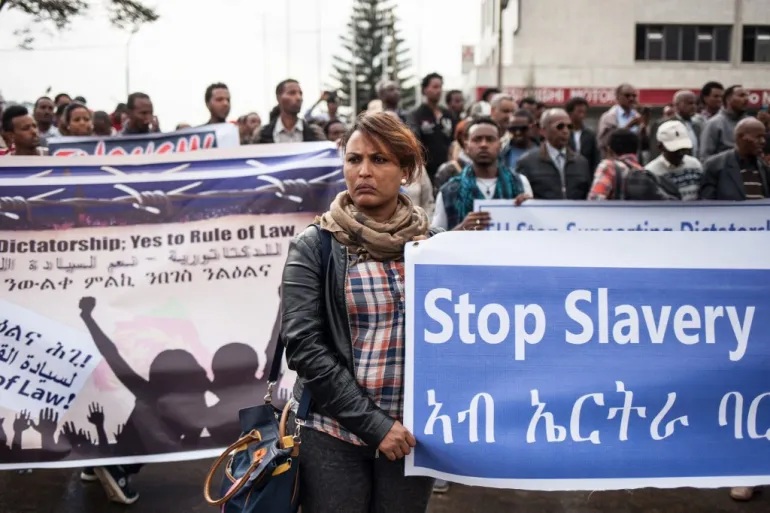In a significant move to uphold human rights accountability, the United Nations Human Rights Council (UNHRC) has overwhelmingly rejected Eritrea’s attempt to dismantle an independent investigation into longstanding allegations of abuse within the country.
The rare bid to end the mandate of the UN Special Rapporteur on Eritrea’s human rights situation was defeated in Geneva on Friday, July 4, 2025, with 25 votes against the proposal, only four in support, and 18 abstentions.
The outcome was hailed by rights groups and international observers as a vital stand against impunity.
Human Rights Watch called the decision “an important message that the international community is not fooled by Eritrea’s efforts to distract from, and discredit, independent human rights reporting on the country’s dire rights record.”
Eritrea’s motion to terminate the mandate came as a surprise to many.
It marked a rare and bold move by a state under active investigation to try to halt scrutiny through a formal vote at the Council.
The Eritrean government claimed the alleged abuses were exaggerated and not systematic, attributing the issues to “capacity constraints” often faced by developing nations.
However, this narrative was sharply countered by European nations, which introduced a competing resolution to renew the Special Rapporteur’s mandate for another year.
Their proposal passed comfortably, reinforcing the Council’s commitment to maintaining independent oversight in one of Africa’s most closed and secretive states.
In his most recent report presented in June, Mohamed Abdelsalam Babiker, the current UN Special Rapporteur and a Sudanese human rights expert—highlighted Eritrea’s continued failure to make any substantial progress on accountability.
He emphasized that the government remained uncooperative and had shown “no meaningful progress” since previous reviews.
Babiker’s findings echoed those of a landmark 2016 investigation by the UN Commission of Inquiry on Eritrea.
The investigation concluded that the government, under President Isaias Afwerki, had committed systematic, widespread, and gross human rights violations that may amount to crimes against humanity.
The report alleged that up to 400,000 Eritreans were subjected to a form of state-sponsored “enslavement,” primarily through the country’s indefinite national service program.
The national service system, which forcibly conscripts young Eritreans for undetermined periods, often spanning years or even decades—has been widely condemned as a tool of repression.
Many Eritreans are unable to escape this program, which human rights advocates liken to lifetime servitude.
The decision to continue the mandate was strongly supported by international human rights defenders.
DefendDefenders, a pan-African NGO based in Uganda, stressed that Babiker’s work remains essential not only for survivors but for the broader Eritrean diaspora scattered around the world.
“The expert plays an indispensable role, not only for the victims and survivors of Eritrea’s abuses, but also for the Eritrean diaspora,” the organization said.
The European Union warned that dismantling the mandate would risk deepening repression and silencing victims.
“Ending the mandate would allow impunity and repression to deepen in silence,” the EU delegation said in a statement to the Council.
Eritrea’s representative, Habtom Zerai Ghirmai, reacted angrily to the outcome, accusing the European Union of perpetuating a “neo-colonial saviour mentality complex.”
He argued that the continued scrutiny of Eritrea through the Special Rapporteur’s mandate was unjustified, calling it “an affront to reason and justice.”
Support for Eritrea’s failed motion came primarily from countries facing their own international censure.
Iran, Sudan, and Russia, all currently subject to UN investigations, voted in favor of ending the mandate.
China also backed Eritrea’s position, asserting that such mechanisms misuse international resources and infringe on national sovereignty.
Despite this support, the broader international community stood firm in its decision to extend the mandate, reaffirming the need for continued monitoring and reporting on human rights conditions inside Eritrea.
For many observers and rights advocates, the vote underscored the growing determination of global institutions to resist authoritarian pushback and uphold mechanisms that ensure state accountability.







